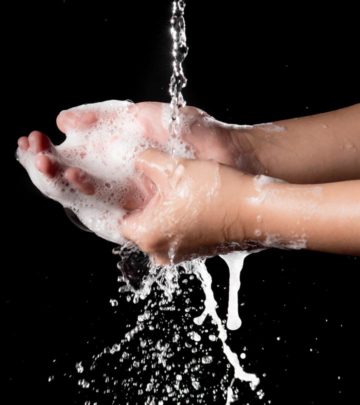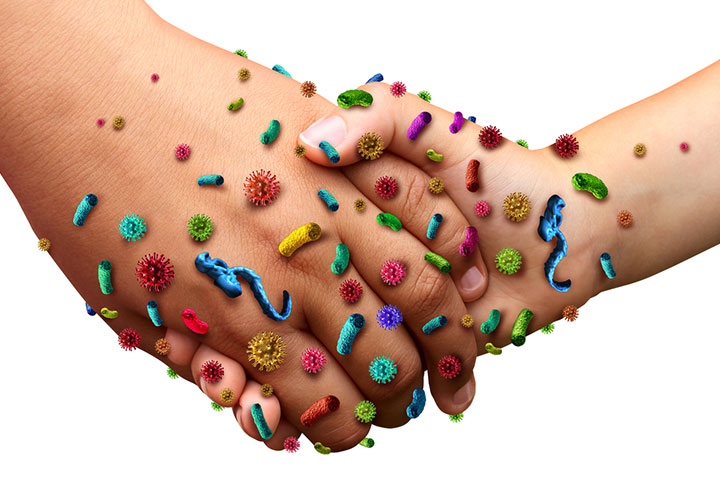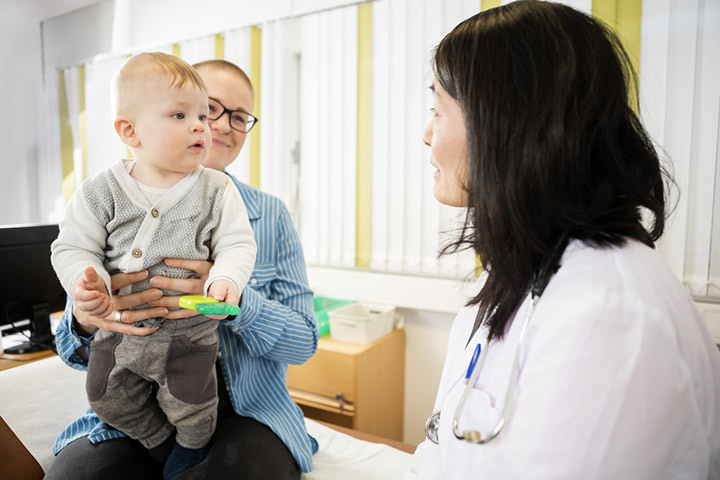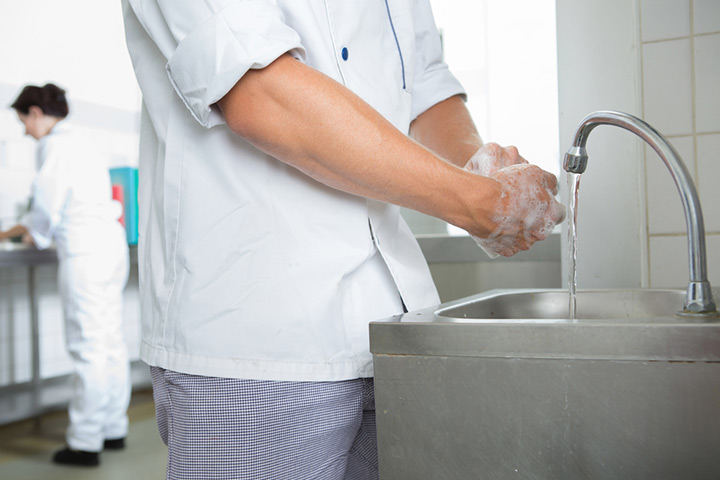
Image: Shutterstock
With a baby to take care of, parents have to watch out for all kind of sanitation needs. Often, those who mildly experience phobia with germs experience a sense of exaggerated caution with an unclean environment. Dealing with babies can be overwhelming when it comes to sanitation. Food spills, diapers need to be continuously replaced, liquids keep getting spit out and so on. With so much of general spillage, it’s easy to get too absorbed in a mess. But for specific types of sanitation issues, parents are better off keeping an eye out. Changing diapers is one such occasion.
Where Germs Are
Right from touching a doorknob to shaking someone’s hands, our hands get exposed to a lot of germs in our surroundings every day. In certain instances, some microorganisms that tend to accumulate are shielding agents that warn our body against any detrimental entities. But other kinds of microbes like E. coli, staph aureus, viruses, and yeasts that are found in dirty, unhygienic spaces (or individuals) are responsible for infecting our bodies. They are usually present on our palms, which we end up using for purposes of eating, drinking, and other close-contact actions. In highly contaminated areas like bathrooms, the bacteria multiply by two. The activity of changing diapers is just as risky.
What Experts Say
Doctors claim that such harmful bacteria are quite stubborn and may flow into other parts of your home interiors. In certain situations, they could stick around for days causing dangerous infections to you and your baby.
Dr. Ketan Shah informs us that the majority of contagious infections are tactile and not limited to just coming in close contact with others (1). Having been exposed to infectious surrounding and then bringing hands in contact with one’s eyes, ears, and mouth is just as risky. In case of babies, touch is especially harmful given that the germs are more prone to oral transmission. Since babies tend to roam around, they accidentally touch polluted surfaces, thereby becoming more susceptible to infections.
Ultimately, without proper precaution, these organisms find a way into the kids’ stomach thus, causing diarrhea and vomiting, or lung infections that lead to a cold and cough. Then, there are other issues that generate through the eyes. All of such difficulties and possible illnesses can be avoided by taking proper hygienic care of the hands.
Soaps Are Best
Buying a hand sanitizer seems to be an obvious choice for many people. For convenience, doctors suggest to always keep a sanitizer that has a high concentration of alcohol; however, it is better to carry an anti-microbial handwash.
According to Dr. Rachel Orscheln, a paediatric infectious disease expert, “Washing hands with soap and water is the best way to reduce the number of germs on them (2).” But this may prove to be a little tricky in the case of changing diapers since the process goes on throughout the day. So keep both handy, and ensure that they have a proven efficiency in fighting microbes.
When washing hands, it’s important to take your time. Make sure that the soap foams sufficiently, and that you rinse off everything after 30 seconds. Soaps are quite efficient when it comes to moist or oily hands. On similar occasions, it’s always better to use soap rather than sanitizers because the latter isn’t that great at removing moisture and germs.
Now that you know how essential it is to keep your hands clean, for the sake of you and your baby, please keep both a high-resistant soap and sanitizer in close proximity. As cliché as it might sound, precaution is always better than cure.















